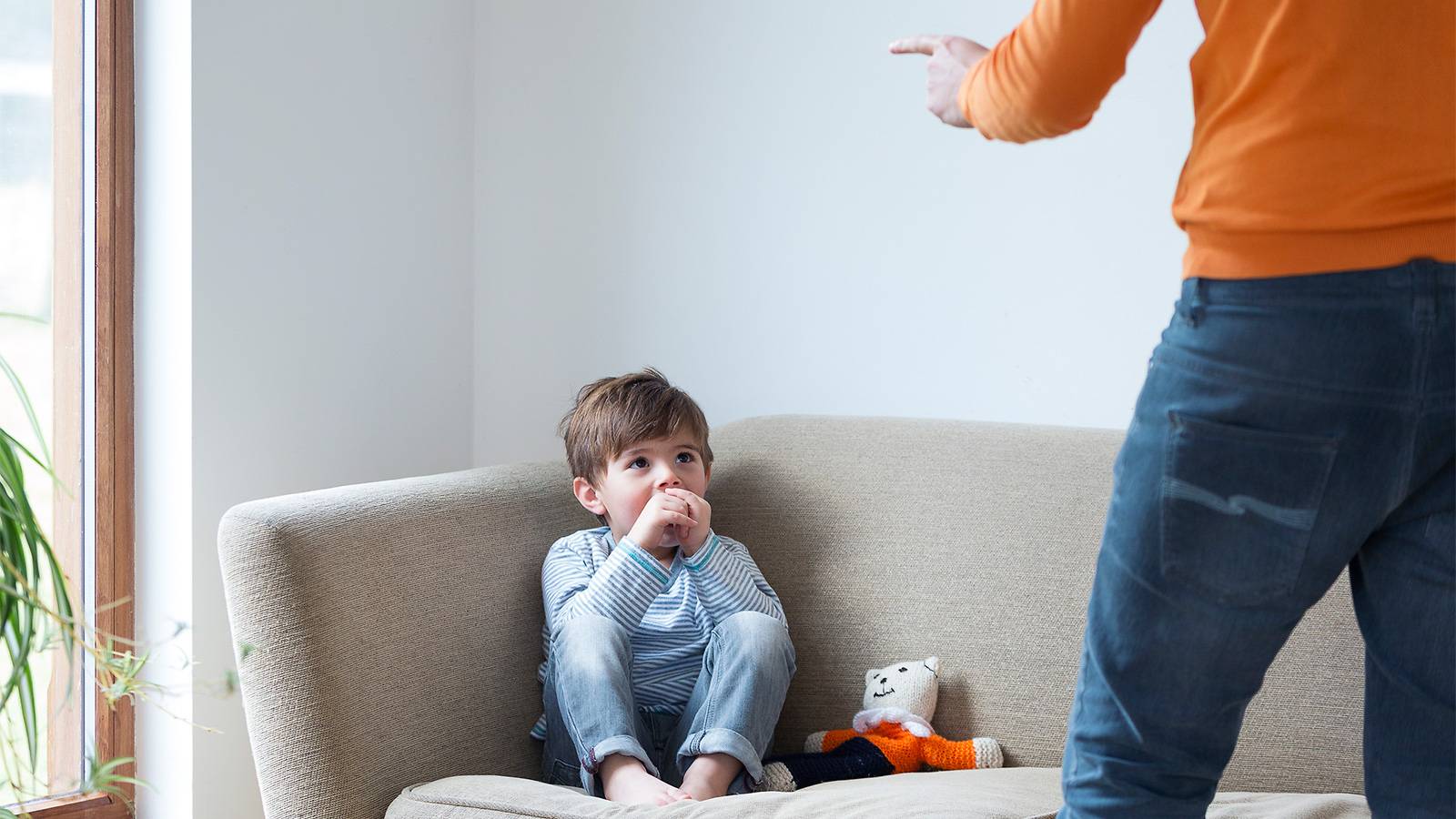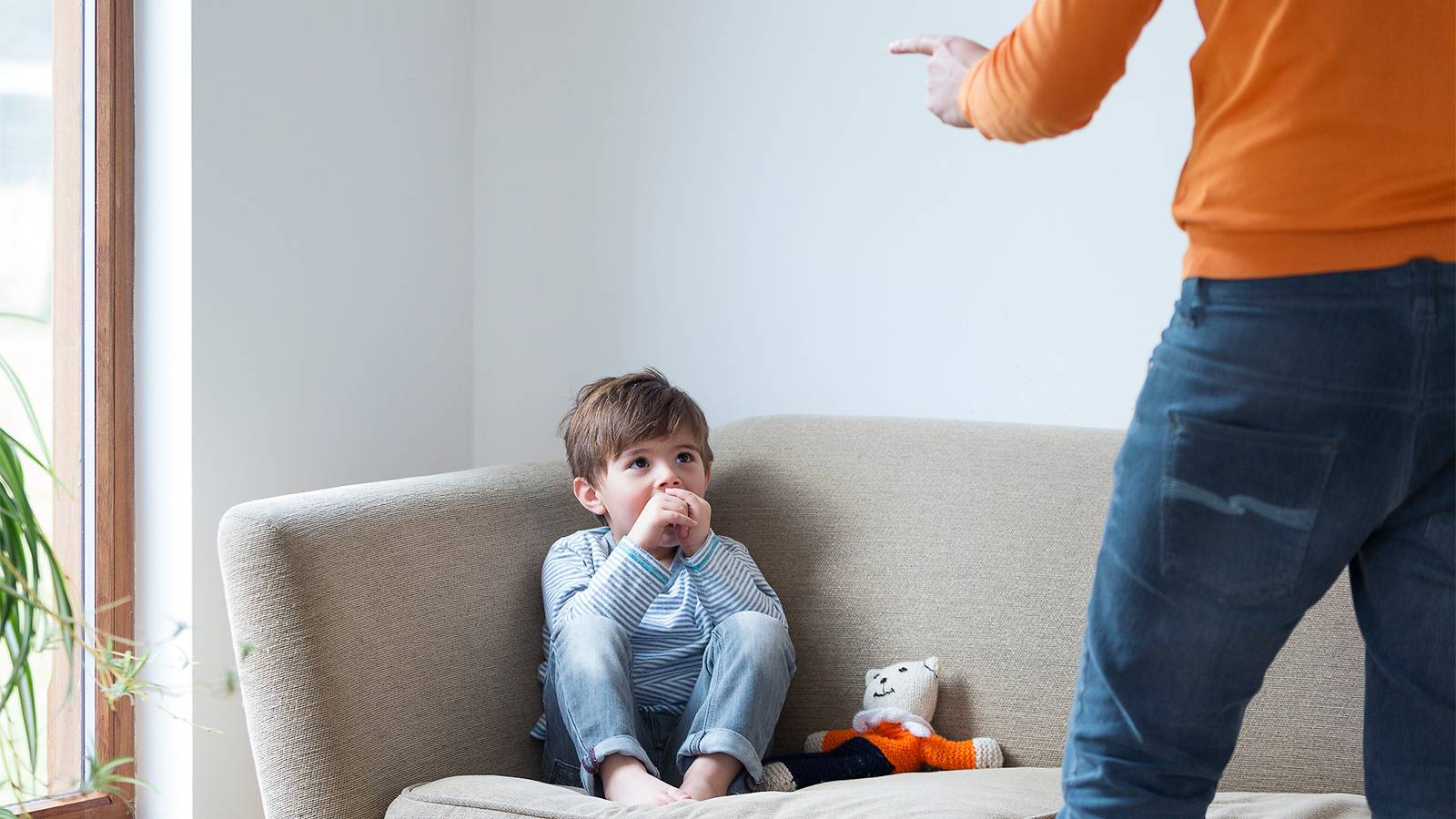Follow these expert steps to rebuild your relationship with junior, plus signs that you have anger management issues…

Even the most mild-mannered parent can lose their cool dealing with their child’s nth temper tantrum. After a long day at the office, Kristine Lim, 35, mum to Rebecca, 6, recalls shouting at her preschooler because she refused to turn in.
It didn’t take long for the mother and daughter to start a heated argument. “I yelled at her and she threw a tantrum, kicking and screaming on the floor. Luckily, my hubby came back in time to take over, if not, I’m sure the neighbours would have come knocking.”
Needless to say, Lim felt guilty about losing her temper. “I’m sure there are better ways to handle it, but it all happened in the heat of the moment.” Lim’s experience will strike a chord with many dual-income families who are stressed over having to juggle work and family life.
Be aware of your triggers for anger and frustration, so you know when to step away before things escalate the next time around.
Constant yelling may have adverse effects on your child’s development. Clinical psychologist at Think Psychological Services, Dr Vaani Gunaseelan lists the negative effects:
* Scaring your child can make them fearful.
* Repeated yelling can also lead to long-term psychological issues such as anxiety or depression.
* Your mini-me may begin to see yelling as a way to express anger.
* Your child becoming verbally or physically aggressive in various social situations like when they are with friends.
* A lower sense of self confidence and thus a greater sense of insecurity.
Insights Mind Centre’s psychologist Daniel Koh shares that in adulthood, your kewpie may also experience relationship problems and trouble relating to others.
Incidentally, your relationship with your sweetie and the family, as a whole, will be unnecessarily strained. So what should you do, now that you’ve yelled at your child? Dr Vaani and Daniel Koh give their suggestions…
1) Give yourself time and space to collect your thoughts Calm down but don’t leave your kewpie hanging as you walk away because the child’s anxiety or fear may grow. Koh suggests, “Tell your child mummy or daddy needs sometime to calm down and then we’ll come back to discuss your behaviour.” As you review what has just occurred, Dr Vaani advises that you be aware of your triggers for anger and frustration, so you know when to step away before things escalate the next time around.

2) Take responsibility for yelling Before talking to your child, calmly start by apologising if you’re at fault. Dr Vaani explains, “This teaches your child that everyone makes mistakes and we must apologise for them.” Also, remember that children will act like children — they misbehave occasionally and it’s part of growing up — so, don’t take their behaviour personally.
3) Talk calmly about your feelings Explain to your child why you got mad and what could have been done differently, Koh suggests. Even better, apologise, then reassure your child with a hug. You should also encourage your little one to talk about his feelings. Dr Vaani notes that it’s equally important to acknowledge their feelings, as well as show empathy. This way, you will have a better understanding of how your actions affect your kewpie’s well-being.
A strong relationship forged by doing joint activities with your little one reduces the likelihood of clashes.
4) Don’t confuse your child’s bad behaviour with his personality It is crucial to make your child’s behaviour the focus of your conversation, instead of attributing it to his personality. For example, say: “We don’t shout at friends” instead of “You’re a horrible and rude child because you yelled at your friends.”
5) Explain why you shouted and avoid using your authority If the argument stemmed from a disagreement, Koh advises that you offer reasons, instead of telling your kewpie that your words carry more weight because you’re the parent. Dr Vaani advises that you use simple statements — with age-appropriate terms — to let him know what behaviour is expected of him. Say “Please use your soft voice when you’re speaking to me.”
6) Make time to build a strong bond with your mini-me A strong emotional connection nurtures trust between parent and child. A strong relationship forged by doing joint activities with your little one reduces the likelihood of clashes.
7) Let your spouse do his part Juggling too many tasks and responsibilities at one go may cause stress. Koh advises that you review your schedules, so that you can assign some responsibilities and tasks to your spouse. Remember, it takes a village to raise a child, so you don’t have to shoulder it all on your own!
Do you have an anger management issue?
If you feel that you are losing your temper more often now and getting verbally abusive with your child, a counsellor or psychologist can help you sort your anger issues. Both experts advise you seek help if you…
* Notice yourself frequently getting angry with your child for minor issues, despite feeling sad and guilty after a recent occurrence.
* Experience an increased frequency and duration of anger, then take a longer time to calm down.
* Find it hard to stop yourself or are becoming more and more impulsive.
* Realise your initial reaction is to yell or put them down using negative labels.
* Get so caught up in your anger than you cannot feel any positive emotion towards your child.
* Notice your anger has affected your relationships, lifestyle, sleeping or eating habits.
Photos: iStock
Like us on Facebook and check SmartParents regularly for the latest reads!
You may also like…
How to treat your child’s wounds at home [Infographic]
5 reasons Threenage years are worse than the Terrible Twos
11 things to note when choosing a preschool
